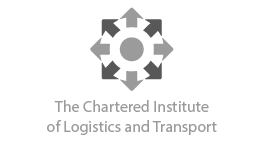
National survey shines light on low cost and improved convenience of buses
- A 90p bus to Fishguard in Wales was the cheapest three mile single fare in the UK according to the 2022 National Bus Fares survey.
- 100% of operators sampled offered contactless payments and 98% mobile ticketing, helping people get on the bus quicker.
- Passenger convenience has also improved with 41 out of 115 operators having a Tap-on Tap-off (TOTO) London style contactless capping fare system.
- Flexible or carnet tickets offered a saving of up to 30%.
- In 2022, the average adult three mile fares for:
- a single ticket cost £2.47,
- a day ticket, £5.29
- and weekly ticket, £19.37
Despite rising inflationary costs for operators, the 2022 National Bus Fare survey once again confirmed that the bus remains good value for money for passengers, with the average price of a single ticket costing £2.47. The average single fare has fallen by 0.1% over the last three as a result of low fare schemes in Cornwall, West of England, Manchester, Merseyside and West Yorkshire.
The survey also highlighted that contactless payment technology, which helps beat the queues to board a bus, as well as more variety of tickets on offer, are improving the customer experience for passengers. This is following a change in people’s travelling habits since COVID.
The latest data was gathered by transport specialists, The TAS Partnership, who analysed 1,242 sample three mile bus journeys across Great Britain, excluding London, during September 2022.
The report found the lowest single fare for an adult travelling three miles was offered by Richards Bros in Fishguard, at 90p. The operator also had the lowest average single fare at £1.25.
Taking the bus in 2022 was also far cheaper than running a car, with a weekly bus ticket representing just under 3% of the weekly wage and a private vehicle, over 9% (without any form of finance or congestion charges). Stagecoach North Scotland’s Peterhead Megarider was the cheapest weekly ticket sampled at £9.60.
TAS Senior Consultant Matthew Moll, said “The bus sector continues to adapt to changes in technology, demand and political thinking.
“The last year has shown that operators have continued to absorb cost increases with average weekly ticket price increasing by only 7.5% since 2019 compared to a 19.7% increase in RPI.”
Graham Vidler, CEO of the Confederation of Passenger Transport, said: “Despite inflationary pressures operators are facing, travelling by bus remains great value for money for existing passengers and those looking to save money or change their travel habits, with the average weekly ticket costing less outside London than within it.
“Not only can people travel in comfort, but key investment made by bus companies means that now all journeys can be made using contactless payment.”
Bill Hiron, Managing Director Stephensons of Essex and Chair of the Association of Local Bus Managers (ALBUM) said: “ALBUM is delighted to support TAS’s 2022 National Bus Fares Survey. We spend much time convincing politicians and other stakeholders of the benefits of good bus services, and it is only with accurate data that we can make our points hit home. Work such as this is invaluable in providing the ammunition we need in shaping the debate.”
37% of samples journeys covering 41 operators could be paid for via a Tap-on Tap-off (TOTO) contactless capping system. Most operators offering TOTO did not offer any discount on day and weekly travel over the purchase of a day or weekly ticket by cash. However, capping ensures that passengers pay no more than the cost of day or weekly tickets.
This contrasts with mobile ticketing with an average discount of 2% for a weekly mobile ticket compared with buying a ticket when boarding a bus. Go-Ahead offered the highest operating group discount of 8% and the highest individual product discount of 19% for Go North East’s Tyne & Wear seven days ticket.
Flexible or carnet tickets, where multiple individual tickets are purchased in bulk, have become more popular since COVID. This is a response to the perceived change in working patterns. There are no industry wide standards for product type or discount, however the most common are day tickets in bundles of five and ten, with 62% and 31% of sample journeys able to be made with these products respectively. On average, a five day carnet offered 20% discount over buying five individual day tickets, with First Bus offering the highest average discount at 25%. The ten day carnets offered on average 23% discount with Stagecoach offering an average of 30% discount over buying ten individual day tickets.
- The full report and previous editions can be found here: https://taspartnership.co.uk/what-we-do/national-fares-survey/
- The NFS is produced by TAS every two years and was first issued in 2009, the 2021 issue was delayed due to COVID funding freezing fares.
- The report for 2022 analyses 1,242 adult single fares across Great Britain captured in September 2022; all sample journeys selected for analysis were approximately three miles long.
- The report includes various analyses of the fares data including by operator, market and also region, and identifies emerging trends.
- The publicly funded low fare schemes in Cornwall, Greater Manchester, Merseyside, West of England and West Yorkshire, helped the average single fare decrease by 0.1% compared to 2019. Individually, the areas saw a reduction in average single fare of between 14% and 40%, with Cornwall seeing a 74% reduction in the average cost of a day ticket since 2019.
- The ‘town zone’ day tickets offered by First Kernow and Go Cornwall were the lowest priced day tickets at £2.50, whilst Stagecoach North Scotland’s Peterhead Megarider was the cheapest weekly ticket at £9.60.
- For press enquiries, please contact Matthew Moll on 01772 204988 or email fares@taspartnership.com


